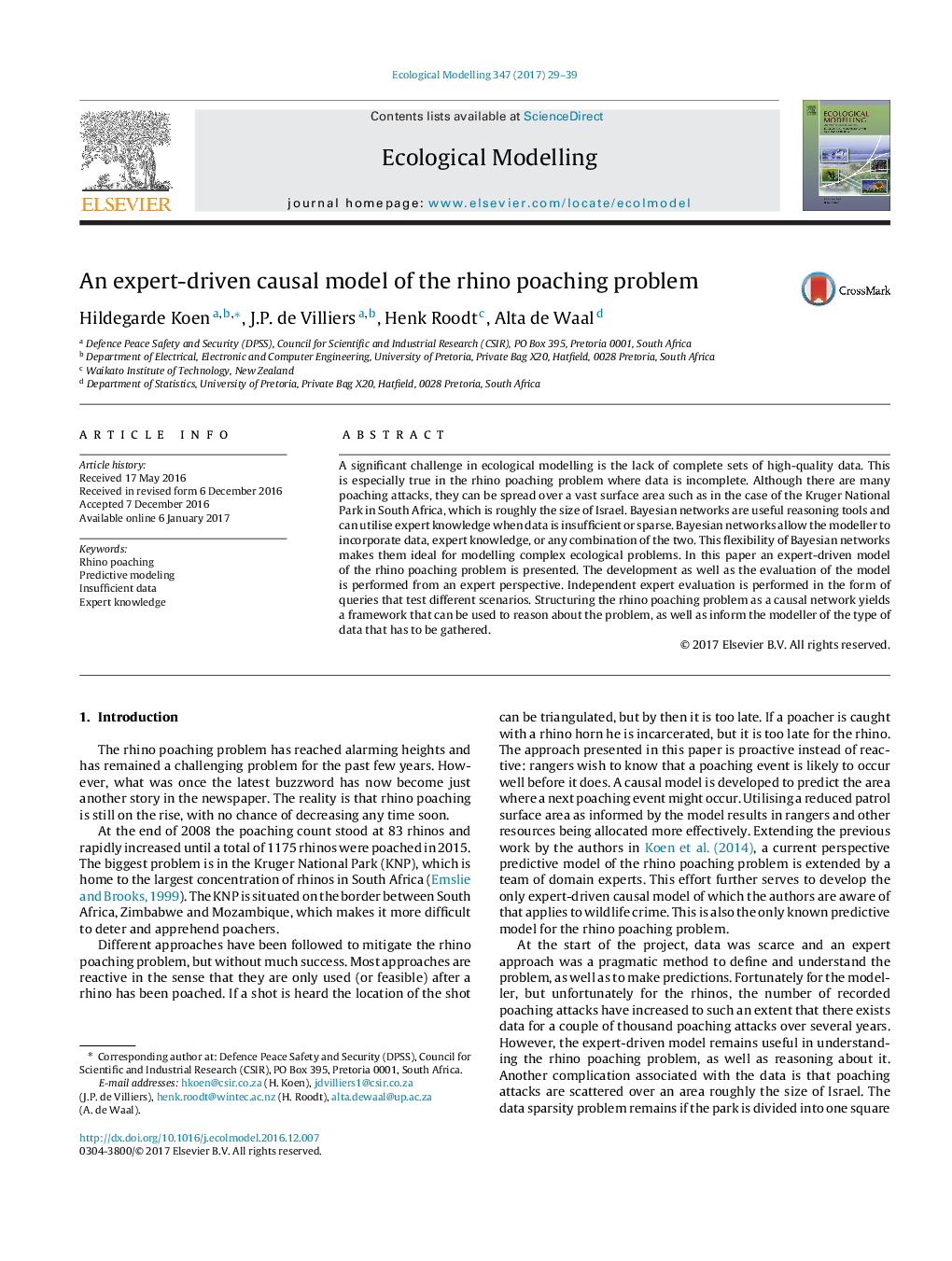| Article ID | Journal | Published Year | Pages | File Type |
|---|---|---|---|---|
| 5742330 | Ecological Modelling | 2017 | 11 Pages |
â¢Data scarcity is a big challenge in environmental modelling.â¢Rhino poaching is modelled with a Bayesian network and expert knowledge.â¢The causal expert model is explained at the hand of subgroups and nodes.â¢Case-based evaluation is performed to test different scenarios.â¢The expert model is used as a reasoning tool for decision making.
A significant challenge in ecological modelling is the lack of complete sets of high-quality data. This is especially true in the rhino poaching problem where data is incomplete. Although there are many poaching attacks, they can be spread over a vast surface area such as in the case of the Kruger National Park in South Africa, which is roughly the size of Israel. Bayesian networks are useful reasoning tools and can utilise expert knowledge when data is insufficient or sparse. Bayesian networks allow the modeller to incorporate data, expert knowledge, or any combination of the two. This flexibility of Bayesian networks makes them ideal for modelling complex ecological problems. In this paper an expert-driven model of the rhino poaching problem is presented. The development as well as the evaluation of the model is performed from an expert perspective. Independent expert evaluation is performed in the form of queries that test different scenarios. Structuring the rhino poaching problem as a causal network yields a framework that can be used to reason about the problem, as well as inform the modeller of the type of data that has to be gathered.
